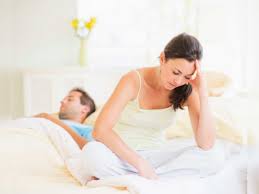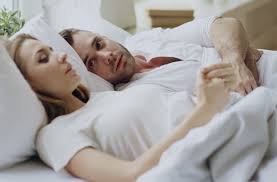
People generally vary in degree of sexual desire. There is no single standard of sexual desire and desire not only varies from one person to another but also varies over the lifetime of a person.
Lack of libido (sex drive) is a common problem that affects many men and women at some point in their lives. Lack of libido can be caused by a number of physical, emotional and lifestyle factors, ranging from poor sleep to excessive drinking.
Everyone’s sex drive is different – there is no such thing as a “normal” libido. But if you are feeling distressed due to lack of sexual desire or it is affecting your relationship, it is important to get help.
This article describes what is libido, symptoms, causes, diagnosis and treatment of libido deficiency in women and men, and how you can get help.
What is libido
Libido literally means libido, it is a term we commonly use to describe sexual activity or desire for sexual activity. The World Health Organization states that sexual health is a state of physical, emotional, mental, and social well-being in relation to sexuality, which is why modern practitioners consider the importance of libido as one of the main indicators of general health and quality of life .
Human libido is very much a mental consideration with deep roots in our cultural environment. Although the original libido is primarily entrenched in the biological nature of humans, the characteristics of attraction are influenced by your cultural level, especially in the early years of life.In men and women alike, libido is directly linked to androgen hormones (ie testosterone). Having about 40 times more testosterone in women than men, they are believed to have more intense libido, although men are also shown to have more aggressive behavior. Such disparity in testosterone levels is also present in other mammals, so the bias appears in most species that males have more pronounced libido and aggression than females.
What is libido deficiency
Low libido means lack of sexual relations or loss of interest in sexual intercourse. Although low libido can affect both sexes, it is more commonly seen in women than in men.
A woman’s sexual desire naturally fluctuates at different years of her age. These fluctuations usually coincide with the beginning or end of a relationship, with major changes in life such as pregnancy, menopause, or illness.
Some antidepressants and anti-inflammatory drugs may also cause low sex drive in women. Apart from losing sexual desire, women may also face severe menstrual problems.
Losing interest in sex is not as common for men, it is for women to win. Because it affects about 15% to 16% of men and at least twice as many women. (Note that these figures are based on the people of America. Our country figures are not available in this regard.)
“When men lose interest in sex, it scares them more than women – because their masculinity is linked to their sexuality to such an extent,” says Esther Perel, a New York City couple therapist and author of Mating in Captivity.
Lack of libido symptoms in men
Low testosterone levels.
Weak parasympathetic nerve.
Different types of erectile dysfunction especially weak penis, curvature of penis, premature ejaculation, loss of semen and sperm, decrease in sperm count etc.
Reduction in sexual excitement and desire.
Poor performance in bed.
Strong stimulation during sexual activity and delayed ejaculation.
Fatigue and energy loss.
Lack of self-esteem and confidence.
Increase in physical fat.
Muscle problem.
hair fall.
Decrease in mass of bones.
Increase in mood swings.
Decreased semen volume.
Symptoms of libido deficiency in women
Any sexual dysfunction.
Pain during sexual intercourse.
Urinary system and genital disorders.
Vaginal disorder.
Not satisfied with sex.
Physical weakness or fatigue.
Reduction in energy.
Hormonal fluctuations.
mood changes.
Low self-confidence and self-esteem.
Various symptoms related to menopause like low orgasm, low testosterone, urinary infection etc.

Due to lack of libido
Lack of libido is often associated with relationship issues, stress or fatigue or may also be a sign of an underlying medical problem such as low levels of hormones. The reasons for this can vary slightly in women and men. The following reasons are considered responsible for this.
Due to lack of libido in men
Low levels of testosterone.
Excessive intake of alcohol, drugs and string antibiotics.
High blood pressure can also be the main reason for lack of libido.
Excessive masturbation is quite harmful and can weaken the sexual nerves and thus result in low libido.
Increased stress levels with depression, stress and many other dementia.
Unhealthy lifestyle, especially unhealthy foods and smoking habits can also hinder your sex life by decreasing libido.
Do not exercise
Low intake of healthy diet including green vegetables and fresh fruits.
Any harmful effects after surgery.
Hormonal imbalance can also be one of the major causes of loss of libido.
Improper sleep mainly arises from disturbances in the brain and therefore automatically affect libido flow.
Serious illness or a dangerous health condition can lower your immune system, which can result in a decreased libido in you to a serious level.
Excessive sex with partner.
Due to lack of libido in women
Menopause
Other Health Issues
Sexual problems
The medicines
Surgery
Breastfeeding and Pregnancy
Relationship problems such as lack of a partner, unresolved conflict, poor sexual behavior, mistrust etc.
Psychological reasons especially anxiety, depression, stress, a bad image of your body in mind, low self-esteem, history of sexual harassment etc.

Lack of libido diagnosis
A diagnosis of low libido for both men and women requires a physical examination. Because at times, arthritis, diabetes, heart disease and other chronic diseases can cause loss of libido in men or women. Sex-specific problems, such as endometriosis in women, can also lead to low libido.
Any vaginal pain during sex is uncommon and can affect libido and can be evaluated by your doctor. Female patients may be asked about any vaginal discharge, which may be a sign of infection and may in turn lead to low libido.
During the discussion with your doctor, tell them about any medicines you are taking right now. Antidepressants, birth control pills and even antihistamines can cause low libido.
You must tell the doctor that you have always had a lack of libido or that this is a new problem. Women who have always had low levels of sexual desire may have a sexual disorder called Hypoactive Sexual Desire Disorder (HSDD).
Until now there was no specialized drug available for this, but the good news is that scientists are working on a drug that may soon be available to treat hypoactive sexual dysfunction disorder and women will be able to have a more satisfying libido.
Apart from asking you questions about your medical history, your doctor can also use the following methods:
Pelvic test:
During pelvic examination, your doctor may check for signs of physical changes that contribute to low sexual desire, such as your genital tissue, vaginal dryness or pain triggering spots.
Other tests recommended:
Your doctor may recommend blood tests to check hormone levels and see evidence of thyroid problems, diabetes, high cholesterol and liver disease.
Referral to the expert:
An expert counselor or specialist sexologist can better evaluate the emotional and relationship factors that may be the cause of lack of libido.
Read more:Long lasting sex? 8 Ayurvedic remedies
